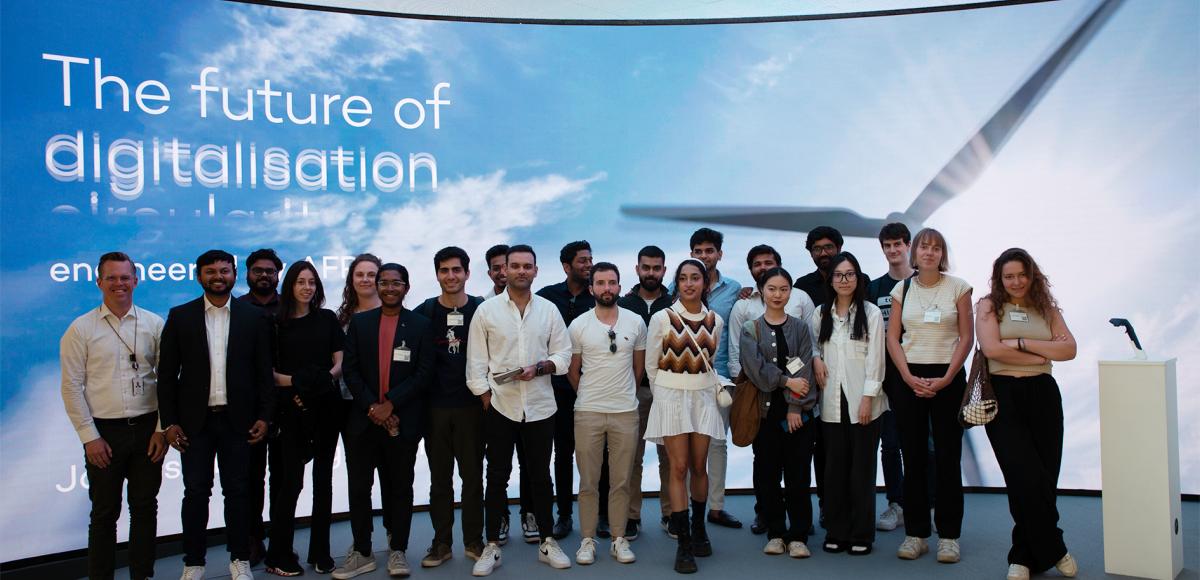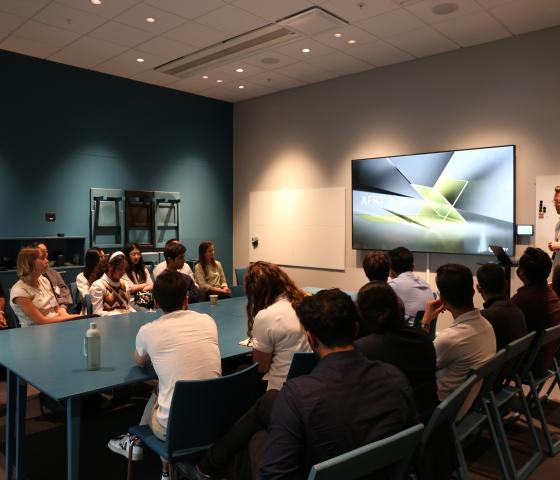
Unlocking AI's Potential for a Sustainable Society: London Business School Explores AFRY's Expertise
The ability to use AI to accelerate the sustainable transition
We have had the pleasure of hosting a class from London Business School at our head office in Stockholm. During their time with us, we showcased the broader scope of our sustainability efforts and revealed how we utilise AI to support this vital mission.
Last week we got a visit from a class from London Business School at our head office in Stockholm. London Business School of Economics reached out to AFRY’s AI & Advanced Analytics Team for insights into our pioneering work leveraging AI to expedite the global transition towards a sustainable society. The visit included an in-depth showcase into AFRY’s works within sustainability as well as how AI is being used to assist this process by one of our AI experts Henrik Mårtensson. We then finished with an open discussion about the state of AI and sustainability in the Nordic and the world as a whole where Prajit Datta acted as a moderator.
During the discussion regarding why sustainability has gained increased relevance, especially amongst younger generations a point raised was that the effects of climate change are becoming more and more noticeable every year with record breaking heat waves every summer. According to one of the students it has become less of an abstract concept and the effects are becoming more “real”. Consequently, the students perceived a moral obligation to actively address the issue. This sense of duty was amplified by the emergence of new technologies that can provide us with unprecedented capabilities to tackle the issue of global warming.
The students brought up that almost every field will be impacted by AI in some way, where fields where positive results have clear measurements will have a high degree of AI usage. However, it was also brought up that fields where the community building and human interaction are the primary focus, such as sales, partner relations, and client management, will not be impacted as much due the difficulty of replacing authentic human connection with artificial intelligence tools.
The students highlighted that nearly every industry will experience the influence of artificial intelligence to varying extents. Sectors characterized bu tangible and measurable positive outcomes will witness a significant degree of AI implementation. However, it was also noted that domains emphasizing community development and interpersonal interaction as their core objectives, such as sales, partner relations, and client management, will not undergo as substantial of an impact. This was attributed to the inherent challenge of replicating genuine human connection through the utilisation of AI tools.

During the course of the discussion the issue of the limitations of AI and LLMs where also brought up. A considerable limitation is that they are yet have any curiosity, critical thinking skills, and ability to create truly new things. To mitigate theses constraints, the students raised that the optimal approach involves leveraging AI in conjunction with human collaboration, as our distinct human qualities serve to compensate for these inherent blind spots.
All in all, we are very glad to have been approached by London Business School to talk about AI and Sustainability as we at AFRY believe that AI is an essential tool in the sustainable transition. We hope we were successful in inspiring the next generation of business leaders in putting a greater emphasis on sustainability and the possibility to use AI tools to create a better, and more sustainable society.
We would like to take this opportunity to thank Fiona Garcia from London Business School for making this possible and thank our AI experts Prajit Datta and Henrik Mårtensson for their insights.






